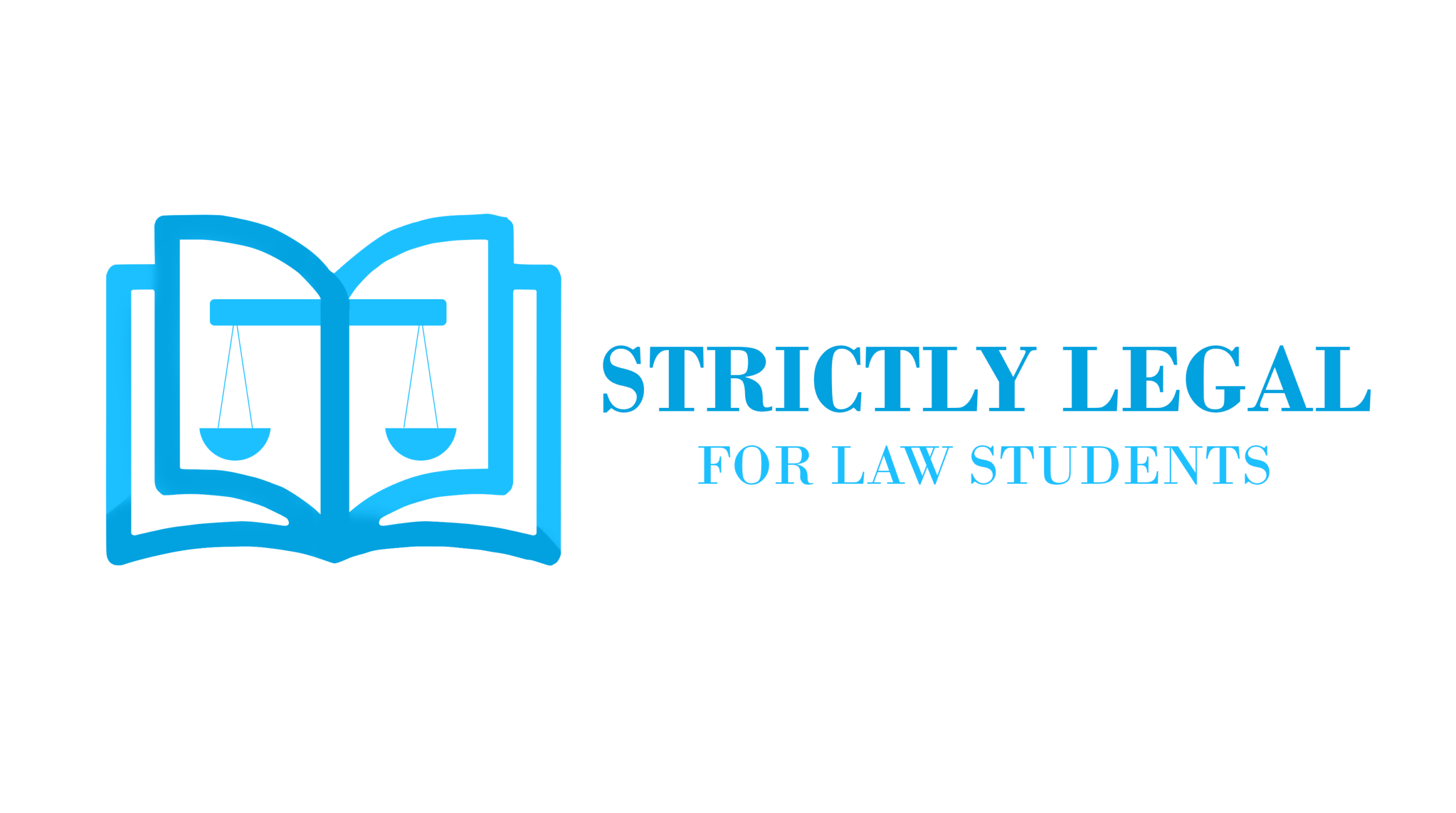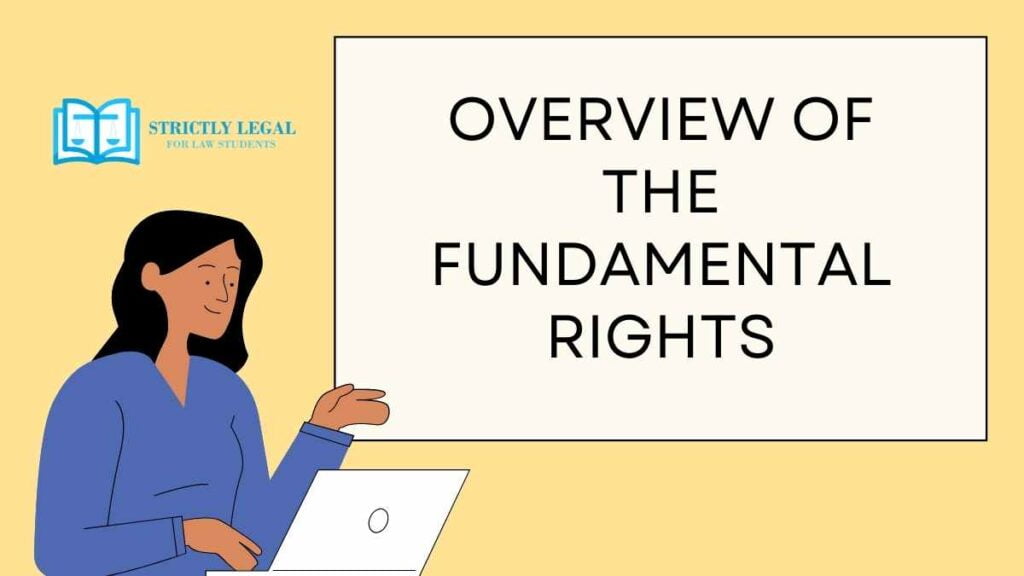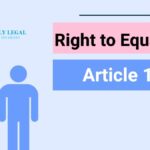Apart from the human rights that nature grants all of us equally, India has certain Fundamental Rights that it considers important for an individual staying in India. Certain rights even apply to foreigners staying in India, and they can exercise fundamental rights to their peaceful co-existence in the country.
Fundamental Rights consist in Part III of the Constitution of India and are very important rights that we are entitled to for a harmonious survival in society. A country cannot develop without its citizens. The citizens need to be empowered in their way for their personal growth and these fundamental rights aim at empowering an individual’s mind and morals. This way, when people exercise these fundamental rights, they are on par with the country’s growth and the country can flourish.
Table of Contents
THE SIX FUNDAMENTAL RIGHTS
The Constitution of India gives its citizens six fundamental rights that they are free to exercise at any course of time and also gives the power to the citizens to file a complaint in court if their fundamental rights are infringed. They are :
Right to Equality–
This Fundamental Right in the Constitution is under Articles 14 to18, which connotes the idea of equality. It says that every citizen of India shall be treated equally and no discrimination will be made in terms of race, color, gender, religion, caste, etc. The basic idea behind incorporating this right as the fundamental right was that, each individual will be treated equally and will receive equal treatment in opportunities of the government. Public places are open to all without any discrimination. The reason why this right is considered important is that prior to independence, a lot of discrimination was faced by the lower class people due to the caste system. This attempts at ending that injustice and hence vouches to give every citizen, the right to equality.
Right to Freedom–
Freedom is the power of a person to act without constraint. Keeping this in mind, the citizens are provided 6 rights under the Right to Freedom and are covered under Articles 19 to 22. The six rights are–
· Freedom of Speech and Expression
· Freedom of Assembly
· Freedom to form associations
· Freedom of movement
· Freedom to reside and settle
· Freedom of profession, occupation, trade or business.
Article 21 which is the Protection of life and personal liberty is a right that is considered vital as this is the only right that exists even during an emergency. This right follows the basic principle of human rights where every individual has the right to life and has liberty, which does not empower any authority to take away this right, even in case of an emergency.
Article 21 A was inserted by the Eighty-sixth Amendment Act, 2002 that provided free and compulsory education to all children aged between six to fourteen, thereby making the Right to Education, also a part of the fundamental rights.
Right against exploitation –
It is a right that prohibits, discourages and disregards the trafficking of human beings or forced labor that goes against human dignity. It is covered in Articles 23 and 24 and focuses upon curbing situations that attempt at confining humans against using their basic human rights.
Right to Freedom of Religion –
India is a secular country that aims at not promoting a particular religion and welcomes people to practice their religion and respects all religions. Articles 25 to 28 grants people the right to practice, profess, propagate their religions which do not disrupt the harmony and peace in the country. This right attempts at spreading brotherhood amongst people.
Right to Minorities (cultural and educational rights) –
Articles 29 and 30 states that the citizens of the minority community have the right to conserve their culture, customs, language by or through an educational institution. This way the interest of those communities which are in the minority, can safeguard and protect themselves.
By the 44th Amendment, Article 31 of the Constitution was abolished and the Right to Property as a Fundamental Right was eliminated. Instead, this is now a legal right under Article 300-A of the Constitution.
Right to Constitutional Remedies–
This right guarantees the citizens to move directly to the Supreme Court in case their fundamental rights are violated. Articles 32 to 35 deal with this remedy and this certain right also deals with the Supreme Court’s power to issue writs for restoring the fundamental rights of the aggrieved citizen. Dr. B.R. Ambedkar, called Article 32 as the Heart and Soul of the Constitution because it was this particular right that provided the proper functioning of other rights. Else, other fundamental rights would have become meaningless if there was no machinery to keep a check on violations of it.
Why are Fundamental Rights Needed?
Fundamental rights are an essential element of the Rule-of-law insofar they allow predictability within the legal realm. A legal system whose procedural rules cannot provide individuals with the certainty that the State will enforce his or her constitutional prerogatives cannot expect the law to successfully guide conduct. For this reason, the enforcement of fundamental rights must be guaranteed in spite of a careless legislative, a negligent administration, an arbitrary trial judge, or a combination of all of the above. Although a coherent system of constitutional review cannot guarantee that the law will be able to guide people’s conduct, an incoherent one certainly guarantees that it will not. A mix of constitutional review procedures based on elements from different legal traditions is not necessarily wrong.
What is clearly flawed is the belief that constitutional rules in favor of individuals should serve different purposes in different traditions. In other words, it is a mistake to act as if the fundamental rights conferred by a Constitution were for just a few and not universal. If a constitutional rule in the benefit of an individual cannot be judicially enforced, then it should not be called a “right”. Similarly, if this “right” is not applicable to everyone, then it should not be called “fundamental”. At a time in which the Indian Legal System enforces fundamental rights should be on both victims and perpetrators. The call for a coherent system of constitutional review is more necessary than ever.
Today, in the 21st century would we be able to say that the real power to govern this nation is vested in its people? Yet, the question that frequently emerges is, does the constitution in genuine terms express the will of the people or the constitution has become a tool in hands of hungry politician? Are the general People of India in real terms assures of Justice, equality, fraternity, and liberty? Is the common man today getting equity or justice? Does equality really prevail? Is Liberty being practiced by all today?
Analysis
In the wake of changing trends in Indian society, Fundamental rights form an indispensable part of our lives. Yet their enforcement remains far away for the normal citizens of the country.
Reasons for Non-Enforcement
There are various reasons why a large part of India is unable to exercise their fundamental rights as has been guaranteed by the constitution of India. Although the Constituent Assembly gave us a lot of rights that have been interpreted very widely by the Apex Court in various cases, the actual enforcement remains a question. Hereby we list a few reasons for nonenforcement:-
1. Lack of Knowledge – Not many Indians are concerned with their rights. Poverty and lack of education is one reason and ignorance is another. Maybe except for those connected with the legal field, the no. Of people well acquainted with the Fundamental Rights is really minimal.
2. Huge Pendency – Due to the huge pendency of cases in India, people are highly reluctant to approach the Courts to provide a remedy even if their most basic rights are being violated. With merely a handful of judges looking after crores of cases, it is almost impossible to make things better.
3. Lack of Resources – Every Indian is well aware of the fact that going to Court is a hefty business and would cost them nothing less than thousands of Rupees. This reason prevents many of the lower class, middle class, and upper-middle-class people to approach the Courts as they might not be capable of affording the cost involved in the so-called free and fair legal process.
4. Inadequate Remedies – As only the State can violate the Fundamental Rights, the remedy that a State provides is not adequate. The State may provide Compensation or Restitution of the situation which may never be enough for the people as the situation may have involved a lot of other things which cannot be considered either by the Judiciary or the State.
5. Stubborn Attitude – The State is not always generous enough to give in and accept its faults. They would not want to compensate anyone and neither would wish to take back their decisions and thus try out every single possible tactic to avoid any kind of repercussions and thus try and get away in suits.

Users not registered with Strictlylegal can Email us their content and the same are posted through this account. In case of abuse, kindly let us know at [email protected]





